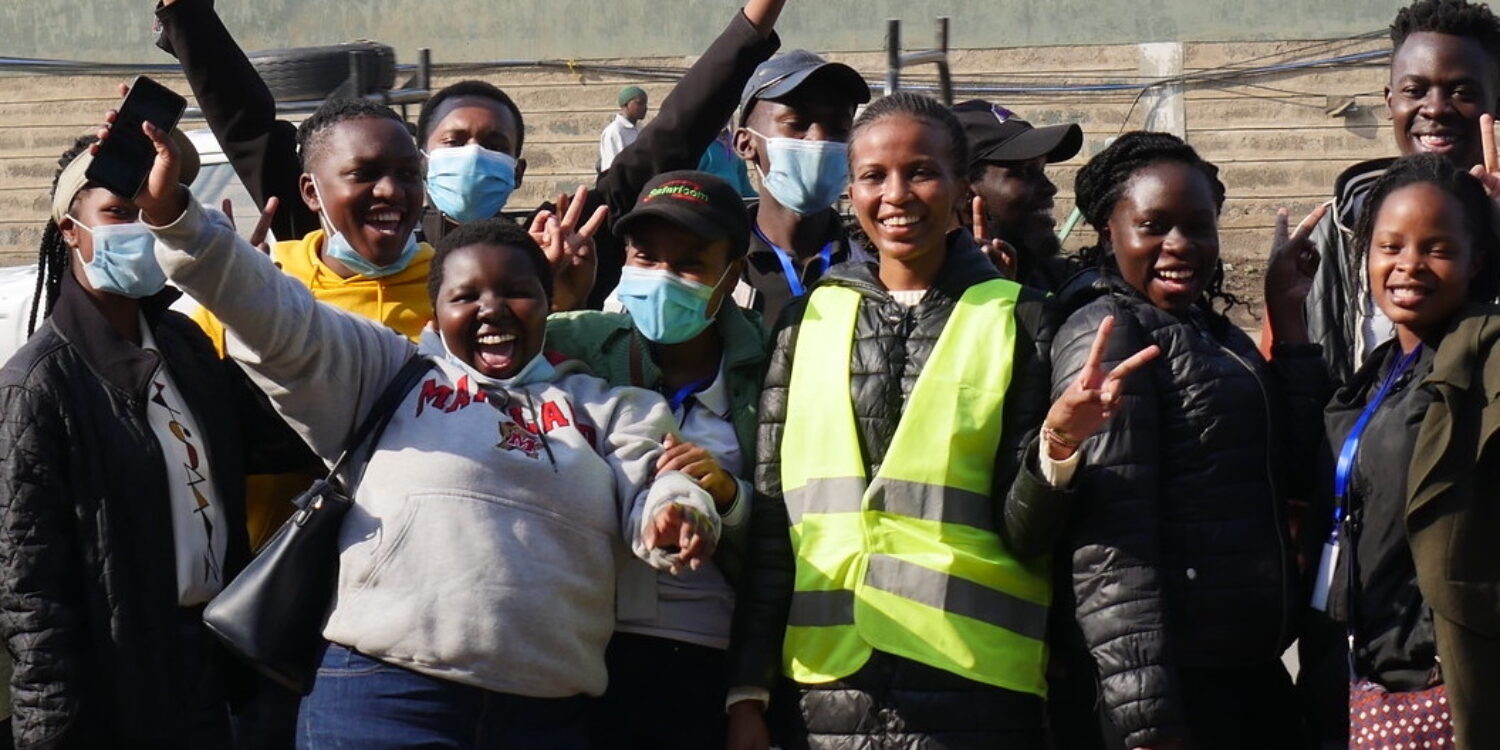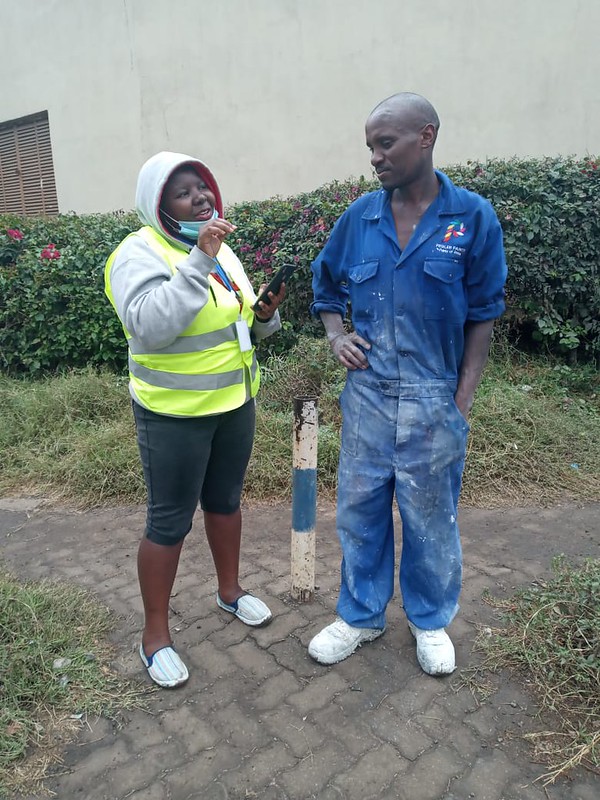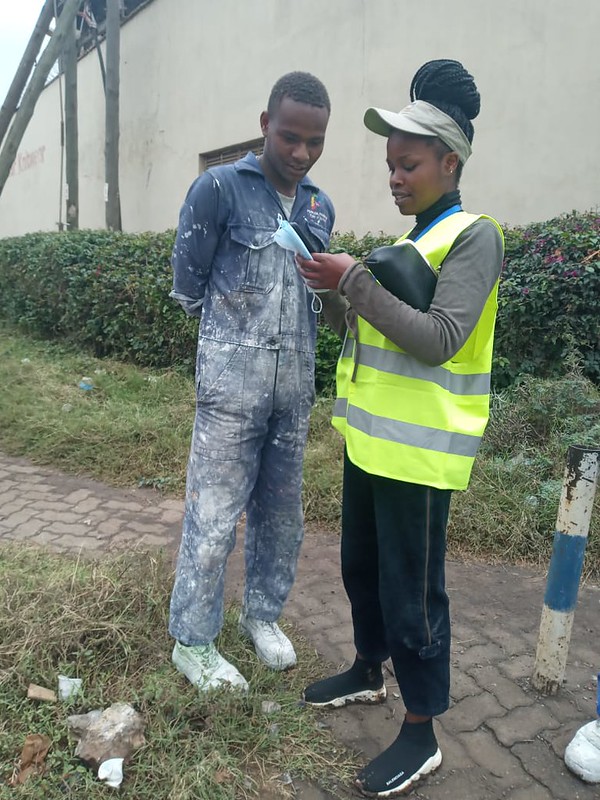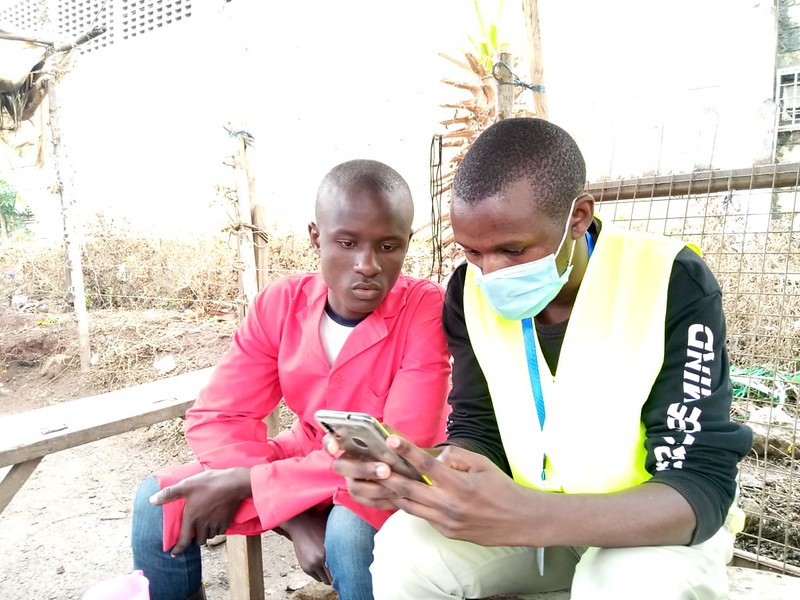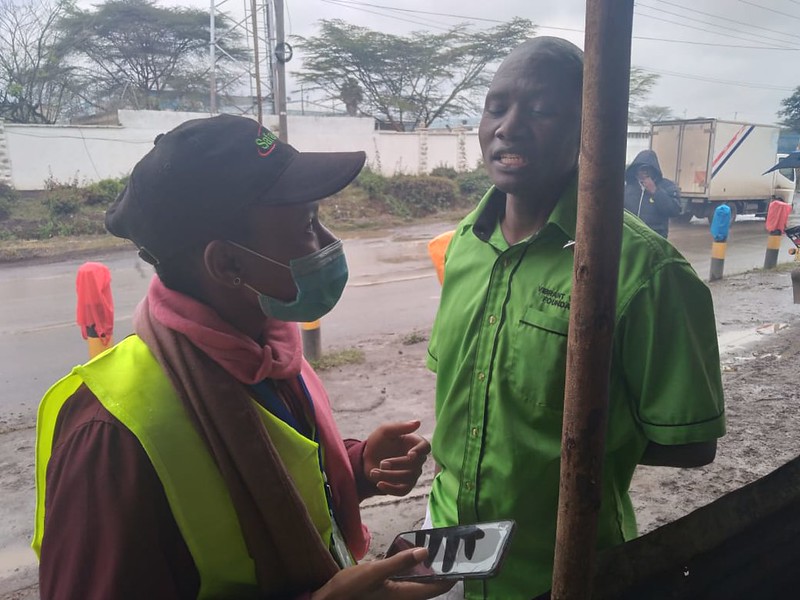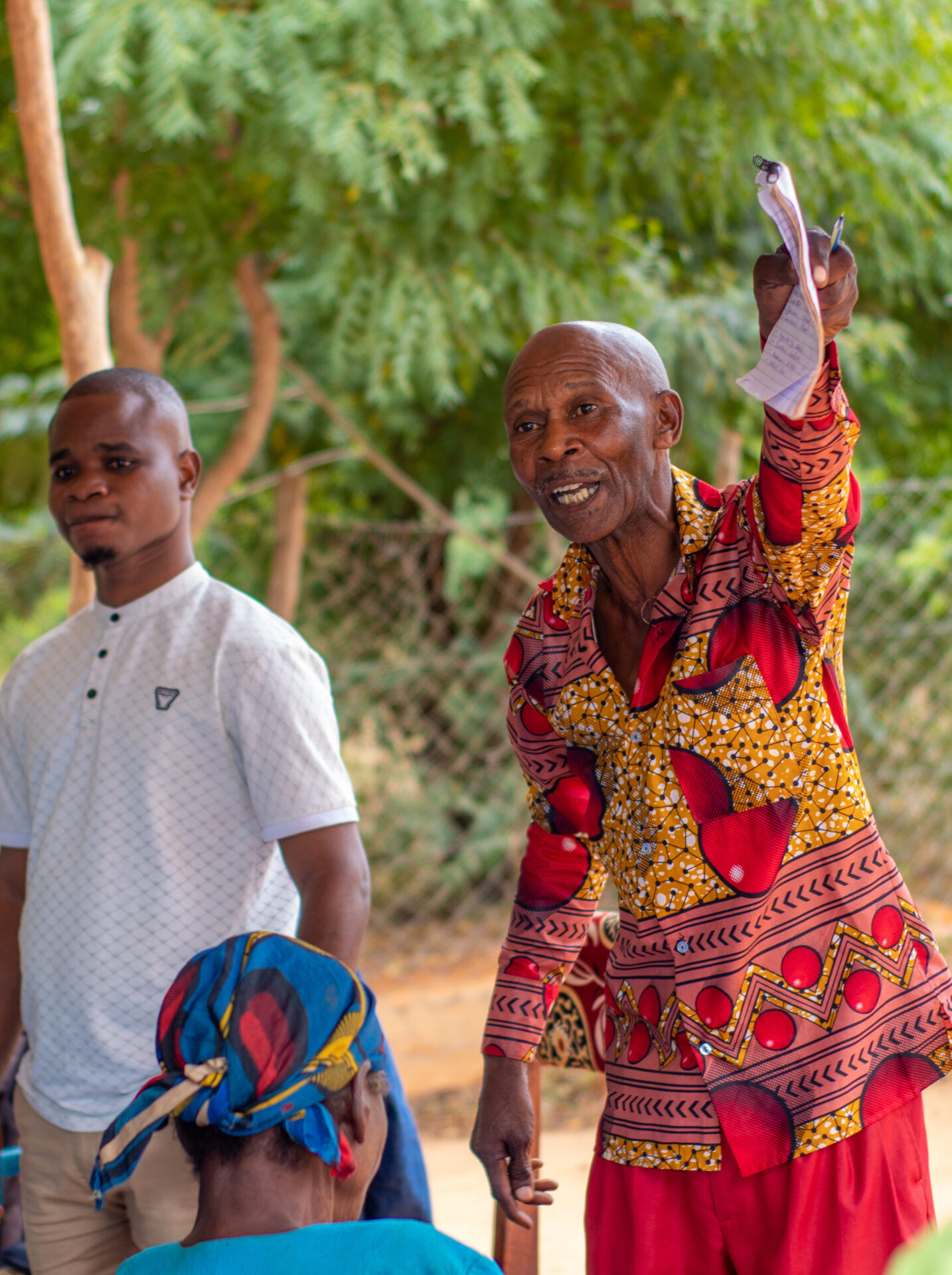SDG 8 aims to “promote sustained, inclusive and sustainable economic growth, full and productive employment and decent work for all”.
Sustainable Development Goals
Martin Wairegi is a vibrant young man, who got a job working at a factory in Nairobi’s Industrial Area. The Industrial Area is the city’s central hub of manufacturing that employs the majority of factory workers, many of whom earn daily wages as casuals.
Martin posted a thread on Twitter, in which he detailed how he got a job through an agency to be a Machine Operator in a company that produces bottle caps for a beverage company. In the tweet thread, he highlighted the plight of factory workers through his first-hand experience – shedding light on factory workers’ working conditions including long hours and little pay for what he described as back-breaking work.
Having spent 6 years in UoN studying engineering and graduating late 2019, I thought 2020 was the year ya kuomoka till Rona happened. I'll do a thread of my experience in job hunting in 2020 and how I ended up kwa Mhindi packing bottle tops 14hours a night…
— 🕳️☄️ (@wyregi_) August 10, 2020
Thread 1/many pic.twitter.com/DEE5EgN8Ie
During the interview process, he said, “They gave me an aptitude test, easy basic Engineering maths and some stuff about compressed air and how to read a vernier caliper… I did well and at the end they informed me they will give me the job…”
He was then surprised to learn that he would in fact be subcontracted through the company’s outsourced HR agency and not directly, wherein he even had to pay them a registration fee!
“The job involved first forming the cartons into a box, then fitting a polythene bag on the box. Next, I would fill up the box with the metal crowns, shake the box for the crowns to settle, seal the box, label the box, put it in a pallet, stack up the pallet up to 5 stacks… drag the pallet to the storage, come back with another pallet and start the same cycle… The first 30 mins I was already sweating but I thought probably after some time I was informed I had to keep doing it till my shift was over…”
Martin Wairegi
Wairegi tells of how he only had access to a 10 minute break for supper (which was to be deducted from his salary). “I don’t understand how someone is expected to work 14 hours a night with one 10 min break for 6 days a week and when the demand is too high the off-day is deferred to a later day,” he posted.
“These “small” companies in Industrial Area make lots of money but the working conditions there are horrible. They don’t care at all about their workers.”
Martin Wairegi
We were fascinated by this account and we wondered how prevalent this situation is. We had a conversation with Wairegi and together, we agreed to start a “side nyake” – a short term ‘side project’ in which we work with Wairegi and 20 other volunteers, to interview as many workers as we could find in industrial area in an attempt to learn what the common workers’ issues are and how similar or unique Wairegi’s situation was.
The Decent Work Initiative was then mooted to use the citizen generated data of factory workers in industrial area Nairobi – covering the length of Enterprise Road (and all it’s tributary streets) to cover a number of key issues:
- Employee welfare including Working hours, Leaves and breaks, Protective and safety gear, Health insurance and benefits
- Pay and general contractual terms
- Job Security including Terms of employment, Missing data (unwilling respondents to give certain info), Sick leave and dismissal without pay
Wairegi was able to mobilise a team of 20 volunteers, with whom we would collect data over three days. We zoned the industrial area and divided into three sections – on day one, we would work from General Motors to the Likoni Road exchange; on day two we covered Lunga Lunga road and on Day three we covered the Likoni Road exchange to Lusaka Road.
The volunteers worked in pairs to cover each of the tributary streets – mainly targeting factory workers on their breaks to ask a short set of questions that would give us a view. We targeted to speak to at least 2000 people in that time, but in three days, we were only able to speak with just short of 1000 people.
Fear is a big inhibitor for citizen-generated data
We learnt that fear was a major issue – many of the respondents refused to speak with us because they were afraid of being fired or even victimised by their workmates for endangering their work. Even among the ones who did engage with us, there were many instances where people said they were speaking out in defiance or desperation, given their tough circumstances – in the hope that we would quickly change something.
Interviews with Decent Work Initiative volunteers highlighting their experiences during the exercise
Related to fear was that many of the people were suspicious that we were a political group, collecting data from a political party that is pushing the Building Bridges Initiative in Kenya.
“How will this help me?” This was a question asked of us by many of the respondents, some of whom were not satisfied that the data collected would in fact lead to their issues being discussed and changes being made.
That said, we gained many insights that indicate that there exist issues in workers’ rights in Kenya’s manufacturing sector. These include:
- Majority of the workers we spoke to were employed as casuals in factories in industrial area and most are paid between Kshs. 500-600. We found that their pay computes to considerably less than the minimum wage prescribed by the government of Kshs. 13, 572.00 (USD 130) per month. What was worse is that we found that there are many cases of people working in the same company as casual employees for years in contravention of the Kenya Employment Act (CAP 226). Based on the fact that they are casuals, they have no protections and are at risk of being fired on a whim.
- Most of the workers that we spoke to worked for 8-9 hours with two 10-15 minute breaks. Given that these jobs are heavily manual and that they involve standing, this create undue pressure on the workers.
- A big driver of the fear that people have is that there is no job security in their workplaces – even among the contracted staff who told our team that they have seen others being fired on a whim. “What can you do, if you are fired? You can’t fight these companies.” The power dynamics between the employees and the companies they work for were fraught with stories of general disdain for their rights.
- We learnt that most of the workers are not provided adequate protective gear. Where it is provided most of them said that they were made to pay for it, in which case some chose to work without the gear. One welder told a volunteer that he does not have the gear to protect his eyes as he works, “ I am used to it,” he quipped. In many of the cases, most of the workers skip meals because lunch is not provided by the companies and they are unable to afford it.
- All of the workers are aware of the Central Organisation for Trade Unions (COTU) but they had no idea what it does for them – even though some of them claimed that a deduction made on their pay goes to the Union. Most of the workers deemed themselves not to be unionised because unions could endanger their livelihood.
- Women are largely excluded from opportunities in the factory floors in many companies. They told our teams about sexism, sexual harassment and the heavily manual nature of work that makes it difficult for them to work in the sector.
So what?
The SDG Goal 8 seeks to promote decent work, full employment and sustained economic growth by the year 2030 with a focus on youth employment, labor rights, inclusivity and equal pay and opportunities. In particular, one of the targets seeks to substantially reduce the proportion of youth who are not in employment, education or training.
In addition, enhancing manufacturing in Kenya and raising its contribution to GDP from 9.2 – 20% by 2022 is one of the Kenya Government’s Big Four Agenda. This goal seeks to reduce unemployment through increased opportunities such as establishment of special economic zones, lower taxation to encourage local industries which in turn will employ the youth given that they make up the majority of the workforce in low and middle income countries such as Kenya.
This is a beginning of work that needs to be done by a cross section stakeholders, including the government (Ministry of Industrialisation, Ministry of Labour), the Kenya Association of Manufacturers, the Federation of Kenyan Employers, COTU and the SDG Kenya Forum to review the actual circumstances of workers rights in the manufacturing sector. There is a lot of room to build the capacity of the workforce in the manufacturing sector. An informed workforce of workers and managers, aware of labor rights and responsibilities, is a crucial lynchpin to a “new generation” of social sustainability practices that are owned and managed at the factory level.
If the manufacturing sector is to attain the aspirations of Kenyans as a hallmark of the country’s development, then issues around workers rights, including their right to a living wage, improvement of working conditions for factory level staff and the inclusion of women and other marginalised groups must come to the fore of the conversation.
The Open Institute intends to remain true to our mission and work with the government, civil society organisations and workers to improve the quality of life and productivity of the manufacturing workforce as microcosm of Kenya’s workforce.

